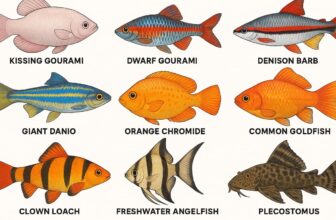TikTok, owned by the Chinese company ByteDance, has seen explosive growth worldwide, with millions of active users, especially among younger demographics. However, the app has also faced scrutiny due to concerns regarding its data collection practices, potential for misuse, and its ties to the Chinese government. These concerns have led to governments across the world restricting or completely banning the app.
TikTok’s rise to global prominence has been matched by growing scrutiny over data privacy, national security, and content regulation. Many governments have imposed bans, particularly in countries with ongoing geopolitical tensions or concerns over data sharing with the Chinese government. Some countries have chosen to restrict TikTok’s use on government devices, while others have opted for complete bans.
Below is a detailed list of countries where TikTok is banned or restricted:
| Country | Ban Type | Reasons |
|---|---|---|
| India | Complete Ban | National security concerns amid border tensions with China; data privacy issues. |
| United States | Partial Ban (Government Devices) | National security concerns; potential data access by the Chinese government. |
| Indonesia | Complete Ban | Spread of inappropriate content, including pornography and explicit violence. |
| Pakistan | Complete Ban | Immoral and indecent content; violation of cultural norms. |
| Bangladesh | Proposed Ban | Potential impact on children; inappropriate content. |
| Afghanistan | Complete Ban | National security concerns; cultural norms. |
| Nigeria | Partial Ban (Government Devices) | Concerns over content regulation; misinformation. |
| Kuwait | Complete Ban | Spread of immoral content; violation of cultural norms. |
| China | Not Available | TikTok is unavailable; Douyin used instead. |
| Australia | Partial Ban (Government Devices) | Concerns over data privacy; national security, especially on government devices. |
| European Union | Partial Ban (Government Devices) | Concerns over data security; misinformation; privacy violations. |
| Canada | Partial Ban (Government Devices) | Concerns over data security; privacy; use of government devices. |
| United Kingdom | Partial Ban (Government Devices) | Concerns over data security; national security, especially on government devices. |
| New Zealand | Partial Ban (Government Devices) | Concerns over data security; national security, especially on government devices. |
| France | Partial Ban (Government Devices) | Concerns over data security; national security, especially on government devices. |
| Norway | Partial Ban (Government Devices) | Concerns over data security; national security, especially on government devices. |
| Denmark | Partial Ban (Government Devices) | Concerns over data security; national security, especially on government devices. |
| Latvia | Partial Ban (Government Devices) | Concerns over data security; national security, especially on government devices. |
| Estonia | Partial Ban (Government Devices) | Concerns over data security; national security, especially on government devices. |
| Belgium | Partial Ban (Government Devices) | Concerns over data security; national security, especially on government devices. |
| Netherlands | Partial Ban (Government Devices) | Concerns over data security; national security, especially on government devices. |
| Ireland | Partial Ban (Government Devices) | Concerns over data security; national security, especially on government devices. |
| Taiwan | Complete Ban | National security concerns; cultural norms. |
| Jordan | Complete Ban | National security concerns; cultural norms. |
| Senegal | Complete Ban | Spread of immoral content; violation of cultural norms. |
| Somalia | Complete Ban | Spread of immoral content; violation of cultural norms. |
| Nepal | Complete Ban | Spread of immoral content; violation of cultural norms. |
| Albania | Complete Ban | Concerns over platform’s influence on children; linked to a fatal incident. |
Country Reasons: Where TikTok is Currently Banned
- India
- Ban Date: June 2020
- Reason for Ban: India cited national security and data privacy concerns as the primary reasons for the ban. It was believed that TikTok posed a risk to India’s sovereignty and security, leading to its removal along with other Chinese apps during the height of geopolitical tensions between India and China.
- United States
- Ban Date: 2025
- Reason for Ban: The U.S. government expressed concerns that TikTok could share user data with the Chinese government, thus threatening national security.
- Indonesia
- Ban Date: July 2018
- Reason for Ban: Indonesia’s Ministry of Communications and Information Technology banned TikTok due to concerns over the spread of inappropriate content, including pornography and explicit violence. The ban was lifted after TikTok complied with the country’s content regulations.
- Pakistan
- Ban Date: October 2020
- Reason for Ban: Pakistan’s Telecommunication Authority (PTA) issued a ban due to concerns over immoral and indecent content. However, the ban was lifted in early 2021 when TikTok promised to comply with local regulations and better monitor content.
- Bangladesh
- Ban Date: 2018 (proposed)
- Reason for Ban: The Bangladesh Telecommunication Regulatory Commission (BTRC) recommended the ban on the platform due to concerns about the potential impact on children and teenagers, especially with content not being age-appropriate.
- Afghanistan
- Ban Date: 2022
- Reason for Ban: The Taliban government, which took control in Afghanistan, banned TikTok along with other social media platforms. The reasons cited were national security and the need to protect children from harmful content.
- Nigeria
- Ban Date: June 2021
- Reason for Ban: Nigeria’s National Broadcasting Commission (NBC) temporarily banned TikTok, citing concerns over its content moderation policies and the spread of misinformation. The ban was a part of the government’s wider efforts to control digital platforms.
- Kuwait
- Ban Date: 2020
- Reason for Ban: The Kuwaiti government banned TikTok over concerns about the spread of immoral content and the violation of local cultural norms. The country has strict regulations regarding online content.
- China
- Ban Date: 2021 (while TikTok operates under a local version, Douyin)
- Reason for Ban: TikTok itself is not available in China. Instead, the Chinese version of the app, Douyin, operates within the country’s strict digital and internet control framework. While TikTok is banned in its home country, Douyin remains available and highly popular.
Countries Where TikTok Faces Restrictions:
While TikTok is not entirely banned, some countries have imposed restrictions on the app, including limiting its use or prohibiting it on government devices:
- Australia
- Status: Australia has issued warnings regarding data security and privacy but has not fully banned the app. Several governmental organizations have removed TikTok from devices.
- European Union
- Status: Several EU countries have raised concerns over the security of TikTok’s data practices. The European Commission imposed a ban on TikTok for its staff members in 2023, and some countries like France and the Netherlands have suggested further actions.
- Canada
- Status: Canada has imposed a ban on TikTok on government-issued devices but has not enacted a nationwide ban.
TikTok’s bans have been attributed to several major concerns:
- Data Privacy and Security: Many governments, especially in Western countries, argue that TikTok may be sharing user data with the Chinese government, potentially jeopardizing national security.
- Content Regulation: Many countries, including Pakistan and Indonesia, banned TikTok over concerns about immoral, inappropriate, or offensive content. This is particularly relevant in countries with conservative cultural and social values.
- Misinformation and Disinformation: Governments have raised concerns over TikTok’s role in the spread of misinformation, especially during political unrest, health crises, and elections.
- National Security: Especially in countries like the United States and India, there are worries about the app’s potential for espionage or influence on public opinion through algorithmic manipulation.
Final Words:
While TikTok remains a global phenomenon with millions of users across the globe, it is clear that governments are taking a more cautious approach to its use in their respective countries. Some countries have opted to ban the app entirely, while others have placed restrictions, particularly on government devices. The future of TikTok will likely depend on how the company handles growing concerns over data privacy, content moderation, and its relationship with the Chinese government.
Given the evolving nature of internet regulations and geopolitical tensions, the list of countries where TikTok is banned or restricted may change in the future.





